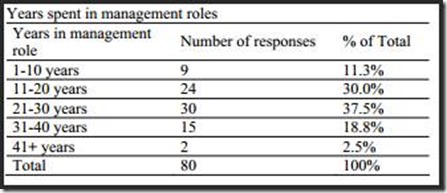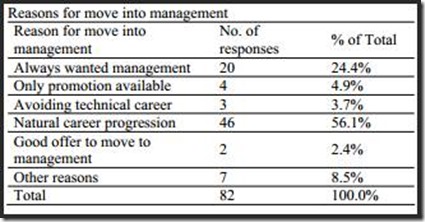
Mobile operators have chalked-out career paths, a defined hierarchy. Usually the experience slabs are 0-2 years, 2-5 years, 5+ years. Anyone with 5+ years of experience is eligible to be promoted to a Team Lead position. In practice, however, this is rarely seen. Since the time telecom industry in Pakistan saturated, career progression took a lukewarm pace. If you were a service level engineer 4 years back, it’s very much likely you hold the same position to date if you are in the same firm.
No one, perhaps, is to be blamed. The whole cycle of growth is impacted. It takes a fairly long span of time for managers to jump up senior managerial level; this affects the time a “Specialist” requires to be a Team Lead and a Team Lead requires to be a manager. It all stays stagnant.
This has led to an increasing trend of inter-departmental switching — something quite common in multi-national telecom firms. In Pakistan, however, it’s only a recent beginning that such switching is welcomed. Till few years back it was seen as a typical wrong doing and as an act much discouraged and rebuked.
Often the line manager of an employee’s current department never agreed to release a resource and thus his/her hiring into another department was usually prevented.
There can be various reasons for an employee’s move to another department within the company. They range from dissatisfaction with the manager to salary scale, nature of work or, simply, lack of interest in the current premise of work.
For example, it is seen in telecom operators and sub-contractors that field engineers are rarely considered for trainings and promotions and thus their learning curve stays stagnant — much limited to the hardware they install and wires they draw. Similarly, drive test engineers are denied a peek into the overall radio scheme of the network and they stay confined to their specific role.
In some operators when an employee switches from one department to another, it is cited as a completely new hiring and the employee is subjected to all formalities which any new hire encounters. In Mobilink when an employee switches between two departments, it is not cited as a new hiring by HR but still approvals from as high up as VP are sought.
In technical divisions, usual switching often takes place between Quality of Service and Radio Network Engineering, BSS and Radio Network Engineering.
Since the high flux of engineers undertaking MBA programs, many inter-departmental switching cases, globally and locally, have been seen leading from technical division to Finance.
Telenor Pakistan introduced a new career path called “Alternative Career Path” – a department where individuals from other departments can apply and boost their career growth. Those stuck in their technical roles for a miserably long number of years are encouraged to apply, and are often recommended by their line managers. An excellent initiative!
This fact is much to do with the fact that higher management, mainly the CEOs, often come with background of strong finances in preceding years.
Faculty of Engineering, University of Southern Queensland conducted a survey and later published it in the Journal of Achievements, which showed that the CEOs – be it of any company – rarely spent time in technical avenues of their firms.
Here are the complete findings:
Overall, the survey indicated the average time spent in a technical role before moving into management was found to be 6.6 year. This covered responses from individuals who spent no time in technical positions up to two respondents who spent 20 years in technical roles before management roles.
Second table shows the level of experience of those who replied to the questionnaire. After spending an average of six and half years in technical roles, the respondents have spent an average of 22.5 years in management. This was bounded by a range of 3 to 45 years in management roles.
Another interesting analysis is done by the researchers showing as to how and why the CEOs of today pursued management:
For firms which have strong HR, a natural progressive path is adopted by the employee, but for many organizations, certainly all in our country, managerial positions are sought as comfortable, rewarding and powerful. So for such individuals and such companies an inter-departmental switching becomes inevitable.





























“An average of 6.5 year of technical experience”…..
Hmmm so I will be eligible to become CEO next year :P
If you’d read carefully, CEOs are not made out of technical personnel with 6.5 years of experience. It means they LEAVE the technical field after 6.5 years to pursue managerial roles. Thus, tailoring their personalities and career paths to, one day, become a CEO.
parchi is what works here other wise they might not consider to make a supervisor even after 10 years of your service! GL
CEO is a wonderland only!
Itne bhi buray halat nhii bhai sab… Allah ka shukar hai k private sector mei rishwat aur parchi system na honay k barabar hai…. Reason is obvious that private companies are established to make money, so owners can’t afford feeding friends & family. Similarly senior management also has very tough targets accordingly, so they also are selfish enough to promote only capable individuals
my brother where do you live, ask someone working in a telecom sector!
Allah Ka shukar hay k internet per a kar koi kuch bhi likh sakta hay … reason is obvious Freedom to talk !
haha.. agreed. I guess this article is for people working in telco’s copying MNCs working principals but with parchi rule and wearing gentlemen attires.